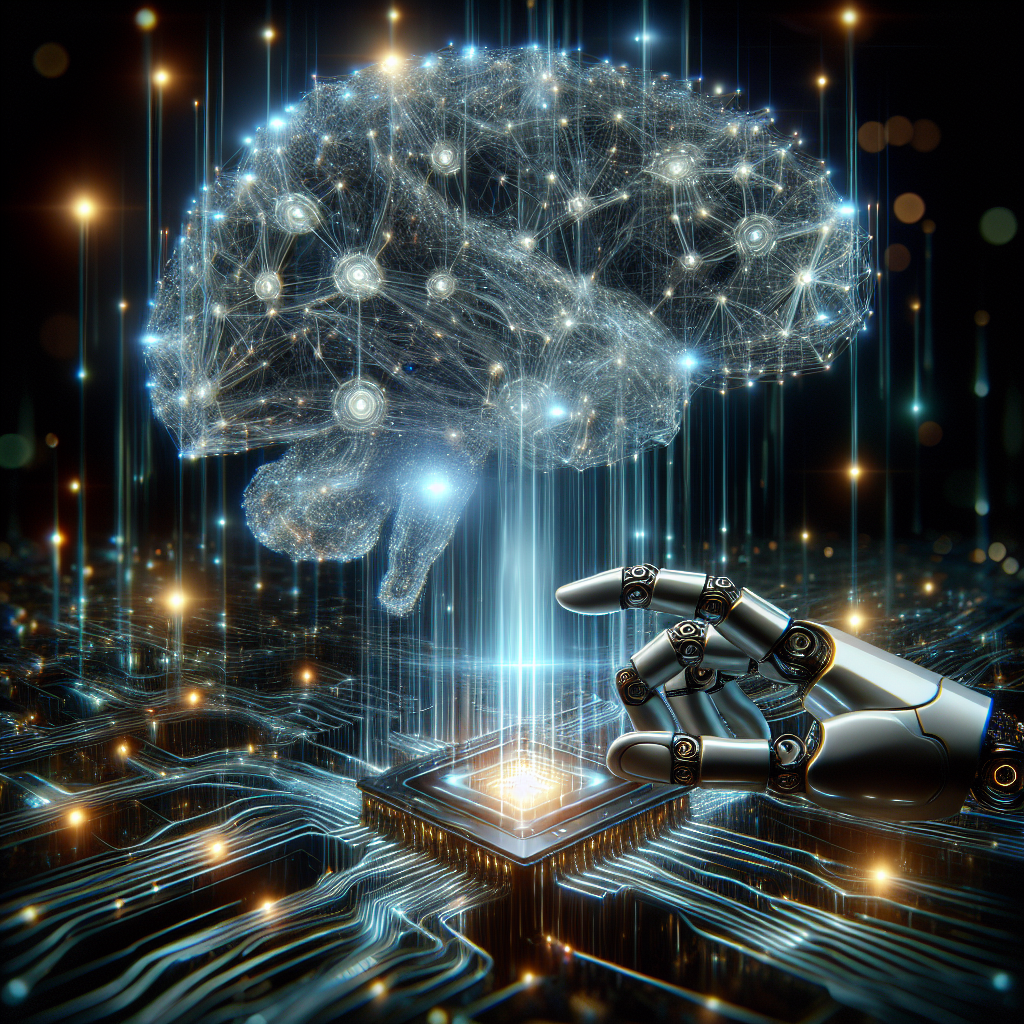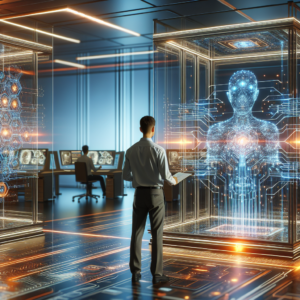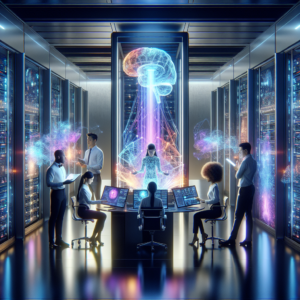Why Agentic AI Will Soon Make ChatGPT Look Like A Simple Calculator
In recent years, artificial intelligence (AI) has transitioned from being a futuristic concept to a practical tool that many individuals and businesses utilize daily. However, as impressive as models like ChatGPT are, they may soon seem rudimentary compared to the upcoming wave of agentic AI technologies. These new systems will redefine our interaction with machines, leading to much more sophisticated and efficient outcomes. In this blog post, we will explore why agentic AI is poised to supersede current AI applications, including ChatGPT, and what this means for the future.
The Current Landscape of AI
Before diving into agentic AI, it is essential to understand the current landscape of AI technologies. Models like ChatGPT are classified as conversational AI. They excel at generating human-like text and have been trained on large datasets to comprehend various contexts. However, their functionality often remains limited to natural language processing, which means they can assist with tasks such as answering questions, providing summaries, or engaging in dialogues.
Limitations of Current Conversational AI
Despite their capabilities, conversational AI models exhibit several limitations:
1. Context Awareness: While ChatGPT can remember context within a single conversation, it doesn’t retain information for future interactions. This means that every conversation starts from scratch, which can lead to repetitive inquiries.
2. Task Execution: ChatGPT can suggest solutions or provide advice but cannot perform tasks or execute actions outside of generating text. For instance, it cannot interact with software or manage tasks across multiple applications.
3. Predictability: The responses generated by ChatGPT can sometimes be formulaic, lacking the originality or creativity that a human might provide. This uniformity can hinder engaging and dynamic interactions.
4. Lack of Understanding: Although ChatGPT appears to understand human language, it does not possess true comprehension. It generates responses based on patterns in the data without grasping the underlying meaning.
What is Agentic AI?
Agentic AI represents a significant leap forward in the capabilities of artificial intelligence. Unlike traditional models, agentic AI is designed to act autonomously and make decisions based on real-time data and changing environments. These systems are characterized by their ability to integrate multiple functionalities, including natural language processing, data analysis, and task execution.
Key Features of Agentic AI
1. Autonomy: Agentic AI can make decisions and take action without human intervention. This allows for more efficient task completion and a reduction in the need for constant oversight.
2. Multi-Functionality: Rather than focusing on a single task or type of output, agentic AI can handle various functions simultaneously. This includes data gathering, analysis, communication, and execution of tasks across different platforms.
3. Learning and Adaptation: These systems are capable of learning from their interactions and adapting their strategies accordingly. This means they can improve over time, becoming increasingly effective in their roles.
4. Contextual Awareness: Agentic AI maintains an understanding of context over extended periods, enabling it to engage in more meaningful and personalized interactions.
How Agentic AI Will Transform Industries
The introduction of agentic AI is likely to have profound implications across various sectors. Here are a few examples of how different industries may be affected:
1. Customer Service
In the customer service sector, agentic AI can act as virtual agents that handle inquiries, manage bookings, and resolve issues autonomously. These systems can learn from customer interactions, allowing them to provide tailored responses and anticipate customer needs.
2. Healthcare
In healthcare, agentic AI can assist in diagnosing conditions, managing patient care, and even scheduling appointments. By analyzing patient data in real time, these systems can provide more accurate and timely recommendations to healthcare professionals.
3. Business Operations
Agentic AI can enhance business operations by automating routine tasks, managing projects, and optimizing resource allocation. This leads to increased efficiency and allows human employees to focus on more strategic responsibilities.
4. Education
In the education sector, agentic AI can provide personalized learning experiences for students. By analyzing individual learning styles and progress, these systems can adapt their teaching methods and materials to suit each student’s needs.
The Ethical Considerations
As with any technological advancement, the rise of agentic AI raises ethical considerations that must be addressed. Key questions include:
1. Autonomy vs. Control: How much autonomy should these AI systems have, and how can we ensure that they act responsibly?
2. Data Privacy: With their ability to analyze vast amounts of data, agentic AI systems raise concerns about data privacy and security. Ensuring that personal information is protected will be paramount.
3. Job Displacement: As AI becomes more capable of executing tasks traditionally performed by humans, concerns about job displacement will arise. Balancing technological advancement with the workforce’s needs will be crucial.
Preparing for the Shift to Agentic AI
To prepare for the eventual shift to agentic AI, businesses and individuals should start by investing in education and training. Understanding how these systems work and their potential implications will be essential in leveraging their capabilities effectively.
Additionally, organizations should begin to explore AI integration within their operations, assessing areas where agentic AI can enhance productivity and service delivery. By embracing these technologies early on, businesses can position themselves to thrive in a rapidly changing landscape.
Conclusion
The advent of agentic AI is set to revolutionize the way we interact with technology, rendering models like ChatGPT as simple calculators in comparison. With their autonomy, multi-functionality, and contextual awareness, these advanced AI systems will redefine industries and reshape our daily lives. However, as we embrace these advancements, we must also navigate the ethical challenges they present, ensuring that technology serves humanity’s best interests. By preparing for this transformation, we can harness the power of agentic AI to create a more efficient and innovative future.



